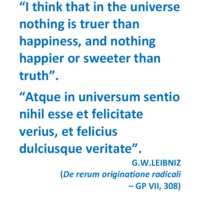
Peter Admirand
Dr Peter Admirand's most recently published book is The Last of Us: Violence, Ethics, Redemption?, published in June 2024 as part of the Bloomsbury series, 'Theology, Religion, and Pop Culture'. His previous book, Destruction, Ethics, and Intergalactic Love: Exploring Y: The Last Man and Saga, was published in 2023 by Routledge in their book series, Routledge Advances in Comics Studies. In 2021, Seeking Common Ground: A Theist/Atheist Dialogue, co-written with philosopher Andrew Fiala, was published by Cascade Books. Humbling Faith: Brokenness, Doubt, Dialogue—What Unites Atheists, Theists, and Nontheists, published in 2019, is also available as an audiobook. Amidst Mass Atrocity and the Rubble of Theology (2012) is his book on theodicy and witness testimony. He is also the editor of Loss and Hope: Global, Interreligious, and Interdisciplinary Perspectives (2014; paperback 2015).
Dr Admirand is Deputy Head of School in the School of Theology, Philosophy and Music, Associate Professor of Theology, and the Director of the Centre for Interreligious Dialogue. He also serves as the Christian Co-Chair of the Irish Council of Christians and Jews.
He has a Ph.D. from Trinity College Dublin; a M.A. in Theology (Ethics) from Boston College; a M.A. in British and American Literature from Georgetown University; and a B.A. in English from The Catholic University of America.
Dr Admirand is Deputy Head of School in the School of Theology, Philosophy and Music, Associate Professor of Theology, and the Director of the Centre for Interreligious Dialogue. He also serves as the Christian Co-Chair of the Irish Council of Christians and Jews.
He has a Ph.D. from Trinity College Dublin; a M.A. in Theology (Ethics) from Boston College; a M.A. in British and American Literature from Georgetown University; and a B.A. in English from The Catholic University of America.
less
Related Authors
Stefano Rozzoni
Università degli Studi di Bergamo (University of Bergamo)
Massimo Leone
Università degli Studi di Torino
Mattia GERETTO
Università Ca' Foscari Venezia
Michael Lodahl
Point Loma Nazarene University
Marianne Moyaert
Vrije Universiteit Amsterdam
InterestsView All (27)










Uploads
Videos by Peter Admirand
Books by Peter Admirand
The book is titled: The Last of Us: Violence, Ethics, Redemption?
The book examines ethical and theological themes in The Last of Us television show and video games. Proposals are due 26 May 2023 and can be sent to peter.admirand@dcu.ie.
More details available here: https://popularcultureandtheology.com/2023/04/10/call-for-paper-theology-religion-and-the-last-of-us/
Humbling Faith helps us see how our beliefs, or non-beliefs, our belongings and identities, often remain flawed, myopic, self-absorbed, unredeemed. The hope is that such awareness of our brokenness can fuel greater ethical partnerships and dialogue, promoting peace from our recognized need for one another.
Humbling Faith is not only a resource towards humbling other faiths, but most importantly, your own.
Foreword by Philip Bialowitz (Holocaust Survivor, Sobibor)
Introduction
Part I: Survivors and Victims' Perspectives on Loss and Hope
1. A Collective Testimony by Argentine Genocide: 'The Prison Walls Cry and We Laugh', Alicia Partnoy (Loyola Marymount University, USA)
2. Classicide in Communist China: A Laogai Survivor's Reflection, Harry Wu (Laogai Research Foundation & Laogai Museum Washington, USA)
3. The Politics of Representations of Mass Atrocity in Sri Lanka: Challenges to Justice and Recovery, Jude Lal Fernando (Trinity College Dublin,Ireland)
4. Torturing God at the Villa Grimaldi, Chile: Loss of Human Dignity, Hope of Unity, Mario Aguilar (University of St Andrews, Scotland)
5. Iranian Women's Movement: A Narrative of Hope and Loss, Roja Fazaeli (Trinity College Dublin, Ireland)
Part II: Interfaith Perspectives on Loss and Hope
6. The Virtue of Christian Learning from Other Religions: The Substance of Things Hoped For, Francis X. Clooney (Harvard Divinity School, USA)
7. A Healing Process in Jewish Theology: From Passivity to Protest to Peace, Anson Laytner (Seattle University, USA)
8. May Buddhists Hope? A Christian Enquiry, John D'Arcy May (Trinity College Dublin, Ireland)
9. Suffering with Loss within Shi'i and Catholic Traditions in Dialogue, Kieran Flynn (St Patrick's College, Ireland)
10. The Paedophile Scandal and its (Hoped-for) Impact on Catholic Intra- and Inter-religious Dialogue, Peter Admirand (Dublin City University,Ireland)
Part III: Ethical and Transdisciplinary Perspectives on Loss and Hope
11. Cultural Resources for Reconciliation and Peace: Drinking From Our Own Wells, Felix Wilfred (State University of Madras, India)
12. Loss and Hope in Levinas's Otherwise than Being and Vasily Grossman's Life and Fate, Steven Shankman (University of Oregon, USA)
13. Practicing A-tonal Ethics: The Loss of Old Certainties as the Ground of Our Hope, Celia Kenny (Church of Scotland, Scotland)
14. Losing Confidence in Free-Market Economics and Free-Market Religion: Recovering True Hope, Joerg Rieger (Southern Methodist University,USA)
15. Journey from Optimism to Hope (David Burrell, Notre Dame University, USA)
Afterword, Fulata Moyo (World Council of Churches)
Throughout this wide-ranging, interdisciplinary work, Peter Admirand draws upon his extensive research and background in theology and testimonial literature, trauma and genocide studies, cultural studies, philosophy of religion, interreligious studies, and systematic theology. As David Burrell writes in the Foreword: ". . .[T]he work's intricate structure, organization, and development will lead us to appreciate that the best one can settle for is a fractured faith built on a fractured theodicy, expressed in a language explicitly fragmented, pluralist, and broken.""
Papers by Peter Admirand
interfaith dialogue) through my analysis of the comic book, Gideon Falls.
I then present how I envision Guru Nanak as an early religious exemplar of both interfaith dialogue and embracing religious pluralism and how this example and advocacy can be a boon both for Christians and for Catholic-Sikh dialogue more specifically.
More details here (and below):
Dear Colleagues,
Amidst entrenched inequalities, war, poverty, and ecological peril, liberation theologies have been both vibrant and sorely needed in the 21st century. Traditional liberationist themes of class and political repression continue to be developed, and new “elephants” in the room are being brought to light, including issues of sex and sexuality; hierarchies; the need for decolonization; and more robust and candid interreligious, intrareligious, and secular–religious engagement. Thus, liberation theologies should celebrate the diversity of perspectives, highlighting in particular those most marginalized. Building on the strong work of many liberationists over the past decades, as well as the AAR Liberation Theologies Group, and the 2013 edited volume, The Reemergence of Liberation Theologies: Models for the Twenty-First Century, this Special Issue invites contributions on the future of liberation theologies, especially from interdisciplinary perspectives. This Special Issue asks (and aims to tentatively answer) key questions such as: Where should liberation theologies direct their attention? Who and what are we continuing to exclude? Where are the hidden and not so hidden places where domination continues? In what ways must theologies of liberation also be liberated? What have been their failures and unfulfilled promises? Most importantly, how can they shape or contribute to a more just world, especially for the voiceless and broken? Submissions are welcome on any connecting theme, including the following areas in dialogue with, or through, liberationist lenses:
Theological concepts, including sin, salvation, redemption, debt, prayer, and Christology.
Religious institutions/structures, including hierarchies, abuses, power, and witnessing or embodying an option for the poor.
Activism and liberation outside religion and academia.
Pedagogies of and for liberation theologies (i.e., reaching the next generation).
Nature: non-human lifeforms.
Indigenous cultures; minoritized cultures.
Buddhism, Candomblé, Christianity, Daoism, Hinduism, Islam, Judaism, Vodun, and so forth.
Interfaith dialogue; religious pluralism; atheism; agnosticism.
Migration; exile; homelessness; landlessness; borders; nations.
Masculinities, feminisms, sex, sexualities, the spectrum of the sexes.
The “isms”: ableism, androcentrism, classism, ethnocentrism, heterosexism, nationalism, racism, sexism, and many more.
The sciences; the cosmos; the planet.
Failures of liberation theologies; abuses of liberation theologies; the hypocrisy of a career in liberation theologies.
This non-exhaustive list is meant to spark ideas. In that light, we ask for proposals of roughly 500–750 words to be submitted to the guest editors by January 15, 2023, so that we can craft an issue with a diversity of perspectives. We want to highlight marginalized perspectives and voices, in particular; hence, if you submit a proposal and do not have institutional funding to cover the open access fees, please let us know. It is important to have a conversation on liberation theologies accessible to a broad audience through an open access journal, and it is also important to ensure that a broad range of people can contribute to this issue. Articles should be between 3000 and 7000 words in length.
Dr. Peter Admirand
Prof. Dr. Thia Cooper
Guest Editors
Manuscript Submission Information
Manuscripts should be submitted online at www.mdpi.com by registering and logging in to this website. Once you are registered, click here to go to the submission form. Manuscripts can be submitted until the deadline. All submissions that pass pre-check are peer-reviewed. Accepted papers will be published continuously in the journal (as soon as accepted) and will be listed together on the special issue website. Research articles, review articles as well as short communications are invited. For planned papers, a title and short abstract (about 100 words) can be sent to the Editorial Office for announcement on this website.
Submitted manuscripts should not have been published previously, nor be under consideration for publication elsewhere (except conference proceedings papers). All manuscripts are thoroughly refereed through a double-blind peer-review process. A guide for authors and other relevant information for submission of manuscripts is available on the Instructions for Authors page. Religions is an international peer-reviewed open access monthly journal published by MDPI.
Please visit the Instructions for Authors page before submitting a manuscript. The Article Processing Charge (APC) for publication in this open access journal is 1200 CHF (Swiss Francs). Submitted papers should be well formatted and use good English. Authors may use MDPI's English editing service prior to publication or during author revisions.
The book is titled: The Last of Us: Violence, Ethics, Redemption?
The book examines ethical and theological themes in The Last of Us television show and video games. Proposals are due 26 May 2023 and can be sent to peter.admirand@dcu.ie.
More details available here: https://popularcultureandtheology.com/2023/04/10/call-for-paper-theology-religion-and-the-last-of-us/
Humbling Faith helps us see how our beliefs, or non-beliefs, our belongings and identities, often remain flawed, myopic, self-absorbed, unredeemed. The hope is that such awareness of our brokenness can fuel greater ethical partnerships and dialogue, promoting peace from our recognized need for one another.
Humbling Faith is not only a resource towards humbling other faiths, but most importantly, your own.
Foreword by Philip Bialowitz (Holocaust Survivor, Sobibor)
Introduction
Part I: Survivors and Victims' Perspectives on Loss and Hope
1. A Collective Testimony by Argentine Genocide: 'The Prison Walls Cry and We Laugh', Alicia Partnoy (Loyola Marymount University, USA)
2. Classicide in Communist China: A Laogai Survivor's Reflection, Harry Wu (Laogai Research Foundation & Laogai Museum Washington, USA)
3. The Politics of Representations of Mass Atrocity in Sri Lanka: Challenges to Justice and Recovery, Jude Lal Fernando (Trinity College Dublin,Ireland)
4. Torturing God at the Villa Grimaldi, Chile: Loss of Human Dignity, Hope of Unity, Mario Aguilar (University of St Andrews, Scotland)
5. Iranian Women's Movement: A Narrative of Hope and Loss, Roja Fazaeli (Trinity College Dublin, Ireland)
Part II: Interfaith Perspectives on Loss and Hope
6. The Virtue of Christian Learning from Other Religions: The Substance of Things Hoped For, Francis X. Clooney (Harvard Divinity School, USA)
7. A Healing Process in Jewish Theology: From Passivity to Protest to Peace, Anson Laytner (Seattle University, USA)
8. May Buddhists Hope? A Christian Enquiry, John D'Arcy May (Trinity College Dublin, Ireland)
9. Suffering with Loss within Shi'i and Catholic Traditions in Dialogue, Kieran Flynn (St Patrick's College, Ireland)
10. The Paedophile Scandal and its (Hoped-for) Impact on Catholic Intra- and Inter-religious Dialogue, Peter Admirand (Dublin City University,Ireland)
Part III: Ethical and Transdisciplinary Perspectives on Loss and Hope
11. Cultural Resources for Reconciliation and Peace: Drinking From Our Own Wells, Felix Wilfred (State University of Madras, India)
12. Loss and Hope in Levinas's Otherwise than Being and Vasily Grossman's Life and Fate, Steven Shankman (University of Oregon, USA)
13. Practicing A-tonal Ethics: The Loss of Old Certainties as the Ground of Our Hope, Celia Kenny (Church of Scotland, Scotland)
14. Losing Confidence in Free-Market Economics and Free-Market Religion: Recovering True Hope, Joerg Rieger (Southern Methodist University,USA)
15. Journey from Optimism to Hope (David Burrell, Notre Dame University, USA)
Afterword, Fulata Moyo (World Council of Churches)
Throughout this wide-ranging, interdisciplinary work, Peter Admirand draws upon his extensive research and background in theology and testimonial literature, trauma and genocide studies, cultural studies, philosophy of religion, interreligious studies, and systematic theology. As David Burrell writes in the Foreword: ". . .[T]he work's intricate structure, organization, and development will lead us to appreciate that the best one can settle for is a fractured faith built on a fractured theodicy, expressed in a language explicitly fragmented, pluralist, and broken.""
interfaith dialogue) through my analysis of the comic book, Gideon Falls.
I then present how I envision Guru Nanak as an early religious exemplar of both interfaith dialogue and embracing religious pluralism and how this example and advocacy can be a boon both for Christians and for Catholic-Sikh dialogue more specifically.
More details here (and below):
Dear Colleagues,
Amidst entrenched inequalities, war, poverty, and ecological peril, liberation theologies have been both vibrant and sorely needed in the 21st century. Traditional liberationist themes of class and political repression continue to be developed, and new “elephants” in the room are being brought to light, including issues of sex and sexuality; hierarchies; the need for decolonization; and more robust and candid interreligious, intrareligious, and secular–religious engagement. Thus, liberation theologies should celebrate the diversity of perspectives, highlighting in particular those most marginalized. Building on the strong work of many liberationists over the past decades, as well as the AAR Liberation Theologies Group, and the 2013 edited volume, The Reemergence of Liberation Theologies: Models for the Twenty-First Century, this Special Issue invites contributions on the future of liberation theologies, especially from interdisciplinary perspectives. This Special Issue asks (and aims to tentatively answer) key questions such as: Where should liberation theologies direct their attention? Who and what are we continuing to exclude? Where are the hidden and not so hidden places where domination continues? In what ways must theologies of liberation also be liberated? What have been their failures and unfulfilled promises? Most importantly, how can they shape or contribute to a more just world, especially for the voiceless and broken? Submissions are welcome on any connecting theme, including the following areas in dialogue with, or through, liberationist lenses:
Theological concepts, including sin, salvation, redemption, debt, prayer, and Christology.
Religious institutions/structures, including hierarchies, abuses, power, and witnessing or embodying an option for the poor.
Activism and liberation outside religion and academia.
Pedagogies of and for liberation theologies (i.e., reaching the next generation).
Nature: non-human lifeforms.
Indigenous cultures; minoritized cultures.
Buddhism, Candomblé, Christianity, Daoism, Hinduism, Islam, Judaism, Vodun, and so forth.
Interfaith dialogue; religious pluralism; atheism; agnosticism.
Migration; exile; homelessness; landlessness; borders; nations.
Masculinities, feminisms, sex, sexualities, the spectrum of the sexes.
The “isms”: ableism, androcentrism, classism, ethnocentrism, heterosexism, nationalism, racism, sexism, and many more.
The sciences; the cosmos; the planet.
Failures of liberation theologies; abuses of liberation theologies; the hypocrisy of a career in liberation theologies.
This non-exhaustive list is meant to spark ideas. In that light, we ask for proposals of roughly 500–750 words to be submitted to the guest editors by January 15, 2023, so that we can craft an issue with a diversity of perspectives. We want to highlight marginalized perspectives and voices, in particular; hence, if you submit a proposal and do not have institutional funding to cover the open access fees, please let us know. It is important to have a conversation on liberation theologies accessible to a broad audience through an open access journal, and it is also important to ensure that a broad range of people can contribute to this issue. Articles should be between 3000 and 7000 words in length.
Dr. Peter Admirand
Prof. Dr. Thia Cooper
Guest Editors
Manuscript Submission Information
Manuscripts should be submitted online at www.mdpi.com by registering and logging in to this website. Once you are registered, click here to go to the submission form. Manuscripts can be submitted until the deadline. All submissions that pass pre-check are peer-reviewed. Accepted papers will be published continuously in the journal (as soon as accepted) and will be listed together on the special issue website. Research articles, review articles as well as short communications are invited. For planned papers, a title and short abstract (about 100 words) can be sent to the Editorial Office for announcement on this website.
Submitted manuscripts should not have been published previously, nor be under consideration for publication elsewhere (except conference proceedings papers). All manuscripts are thoroughly refereed through a double-blind peer-review process. A guide for authors and other relevant information for submission of manuscripts is available on the Instructions for Authors page. Religions is an international peer-reviewed open access monthly journal published by MDPI.
Please visit the Instructions for Authors page before submitting a manuscript. The Article Processing Charge (APC) for publication in this open access journal is 1200 CHF (Swiss Francs). Submitted papers should be well formatted and use good English. Authors may use MDPI's English editing service prior to publication or during author revisions.
In my piece, I first analyse three works involving Francis, two while he was a Cardinal based in Argentina, then his first encyclical. I will conclude with my main intention, namely, to confront the reality of a Pope who was the Provincial Superior of the Jesuits in Argentina during what Alicia Partnoy refers to as that country’s genocide. Thus, I will suggest where the Church led by Francis can heal its failures of the past and be more vigilant in confronting despotic regimes in the present and future.
In examining the move from disgraced (colonisation) to grace (liberation), the virtues of awareness, truthfulness, retentiveness, humility, fortitude, fellowship, and (a fractured) faith will be highlighted. With this liberation, comes a responsibility to the Other, here entailing twelve areas that are imperative to re-assess in dialogue within the Catholic Church and with the Church’s interreligious (and secular) dialogue partners.
Such hopes were drastically re-aligned in the Catholic Church with Vatican II, and especially the promulgation of Nostra Aetate. In this regard, hope shifted into a more ethical and dialogical framework: one hoped for opportunities to present one’s views and to listen to another’s views; one hoped to gain insights and truths from one’s dialogical partner; while not minimizing difference, one hoped to find shared spaces of communion, partnership, and solidarity. In more recent decades, there has been a backlash against some of these tendencies, as most pronounced in Dominus Iesus (2000) and in some further Notes and clarifications issued by the Congregation of the Doctrine of the Faith. With a new emphasis on evangelization and mission, how one employs hope in the dialogue may again be changing. This chapter will first look at hope as a virtue and the ethics of hope before tracing this change, particularly in the context of Jewish-Christian dialogue. It will ultimately argue that without the ethical and humble hopes of seeking to learn from and respecting the Other, no true interreligious dialogue will be possible.
https://marxandphilosophy.org.uk/reviews/7996_the-oxford-handbook-of-genocide-studies-review-by-peter-admirand/